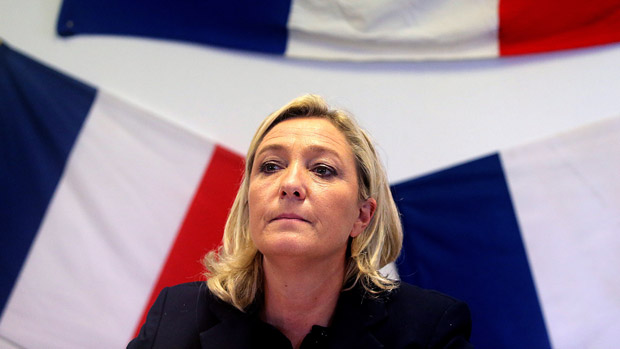Marine Le Pen separates herself from Front National
French presidential candidate temporarily distances herself from far-right party as campaigning for second-round of voting begins

A free daily email with the biggest news stories of the day – and the best features from TheWeek.com
You are now subscribed
Your newsletter sign-up was successful
Marine Le Pen has resigned as leader of the Front National, saying she needs to be "above partisan considerations" in her battle for the French presidency.
"Tonight, I am no longer the president of the Front National. I am the presidential candidate," she said, a day after making it through to the second-round of the election.
In her campaign speeches, Le Pen has consistently said she is not a candidate of the far-right party and that her policies are hers alone.
The Week
Escape your echo chamber. Get the facts behind the news, plus analysis from multiple perspectives.

Sign up for The Week's Free Newsletters
From our morning news briefing to a weekly Good News Newsletter, get the best of The Week delivered directly to your inbox.
From our morning news briefing to a weekly Good News Newsletter, get the best of The Week delivered directly to your inbox.
"[She] has worked to bring in voters from the left and right for several years, cleaning up her party's racist, anti-Semitic image to do so," says the Associated Press.
However, it is expected she will resume her position as leader as "the French term she used signalled that the move to step aside would be temporary", the BBC says.
Following Sunday's result, Le Pen and centrist candidate Emmanuel Macron will face the final vote on 7 May.
Macron is widely tipped to win the election, after politicians from the Socialist and Republican parties eliminated in the first round of voting, despite having dominated French politics for decades, came together to urge voters to reject Le Pen's far-right policies.
A free daily email with the biggest news stories of the day – and the best features from TheWeek.com
"Only the defeated far-left candidate, Jean-Luc Melenchon, pointedly refused to endorse Macron, saying he needed to consult his base first," The Guardian says.
Le Pen attacked her centrist rival, calling him a "hysterical, radical Europeanist".